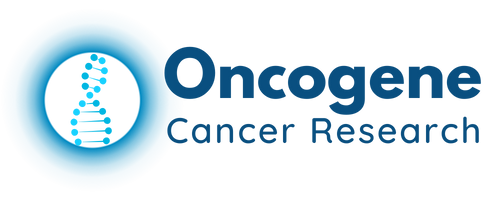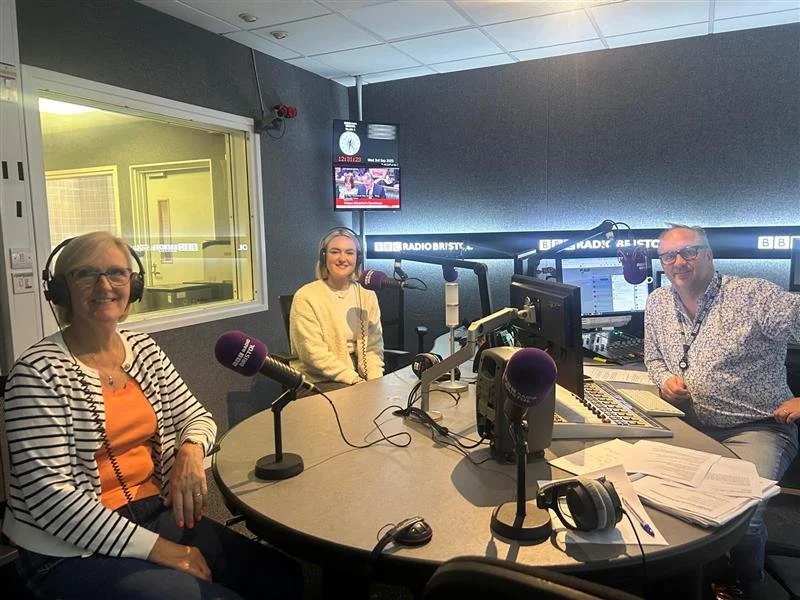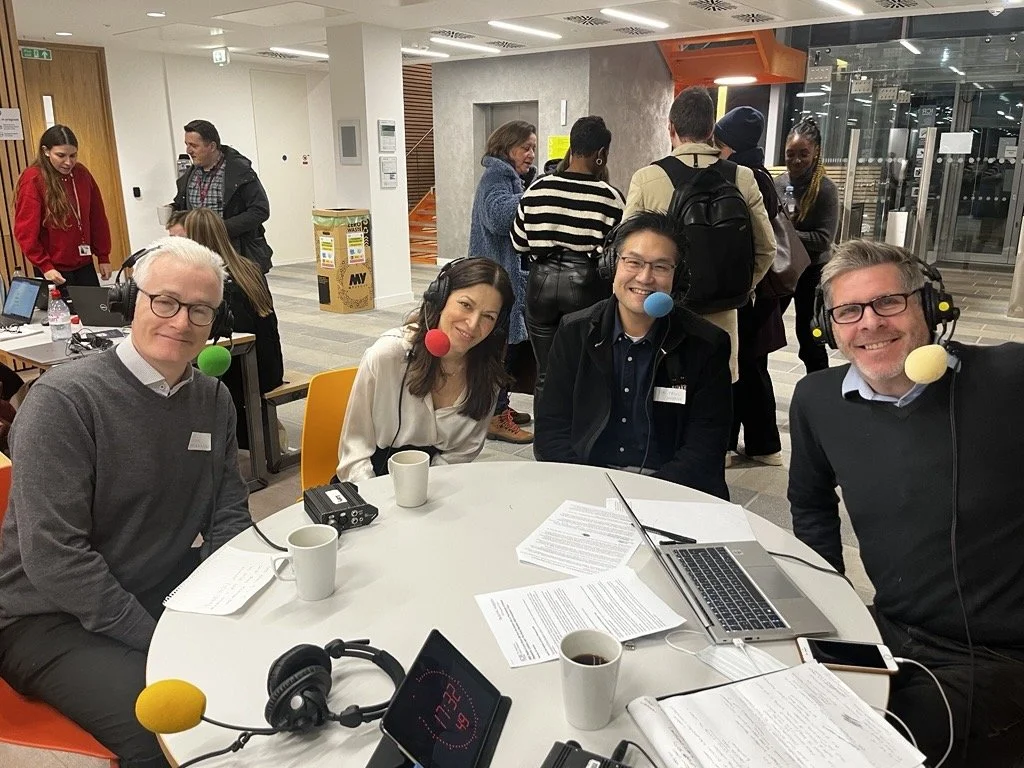Newsroom.
Speakers bureau.
At Oncogene Cancer Research, we work closely with a dedicated network of patients, care partners and advocates who are available to speak about the realities of living with lung cancer. Whether reacting to breaking research, offering perspective on clinical trials, or sharing personal experiences, our community brings powerful, informed voices to the cancer conversation.
For media enquiries, contact us at here.
News releases.
Oncogene Cancer Research donates £10,425 to support groundbreaking lung cancer research at The Institute of Cancer Research
9 JULY 2025, LONDON: In this release, we announce a £10,425 donation to The Institute of Cancer Research, raised through the London Marathon by three incredible friends of our co-founder. The funds will support research at the Paul Huang Lab, focused on overcoming treatment resistance in oncogene-driven lung cancers — helping bring new hope to patients today and in the future.
Read the full press release here.
Oncogene Cancer Research calls for urgent reforms in lung cancer communication and shared decision-making following major European survey
10 JUNE 2025, LONDON: In this release, we highlight the urgent need to improve how patients with lung cancer are informed, supported, and involved in their care. Based on findings from a major European survey, the report reveals significant gaps in communication between patients and healthcare teams—particularly around biomarker testing, treatment options, and long-term planning.
Read the full press release and access the report here.
OCR in the news.
BBC Radio Bristol: 4 Sept 2025
Jan and Amy Clark on BBC Radio Bristol: shining a light on oncogene-driven lung cancer
Our cofounder Jan Clark and her daughter Amy joined BBC Radio Bristol to share their family’s story and why more research into oncogene-driven lung cancer is urgently needed.
In the interview, Jan and Amy talk about how this cancer can affect young people - like Amy, who was diagnosed with stage 4 lung cancer at age 20. Jan also talks about the £100k we’ve already invested in vital research, and how our first Charity Ball on 1 November 2025 will help us raise even more for this vastly underfunded cancer.
👉 Listen now and discover why we’re determined to change the future of lung cancer research — and how you can be part of it.
Click the audio player below to listen in.
Thank you BBC Bristol for highlighting the need for more research for people like Amy.
News coverage in The Sun
Global cancer cases rise at alarmingly high rate – why are so many young women getting deadly disease?
Our co-founder Amy Clark’s story featured in The Sun
May 2025
In this powerful feature, the drastic 79% increase in under‑50 cancer cases since 1990 is highlighted through real patient stories—like that of Amy Clark.
Amy was just 20 when she was diagnosed with stage 4 lung cancer, a shock delivered shortly before her 21st birthday. Amy shares how the moment as an almost “out‑of‑body experience,” struck by how unexpected her diagnosis was.
Her story underscores why everyone—regardless of age—needs early biomarker testing and access to cutting-edge treatments
News coverage in Mail on Sunday
So many young women who've never smoked are getting lung cancer. Now scientists think they've found two shocking causes - and reveal what to look out for
Our co-founder’s daughter Amy Clark along with Mel Erwin and Jules Fielder talk about the rise in lung cancer among young women in The Mail on Sunday [subscription]
June 2025
The Mail on Sunday features Amy Clark, Mel Erwin, and Jules Fielder—three women diagnosed with lung cancer despite never having smoked. Amy was diagnosed just before her 21st birthday after years of unexplained back pain; Mel and Jules also faced delayed diagnoses due to symptoms being mistaken for less serious conditions. Their stories underscore the growing number of young women affected by this disease and the urgent need for greater awareness.
Scientists are investigating two likely causes behind this rise: air pollution and hormonal or inflammatory factors. Research suggests that gene mutations common in never-smokers may be activated by long-term exposure to pollutants..









